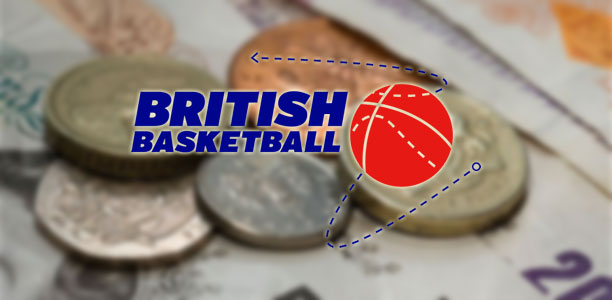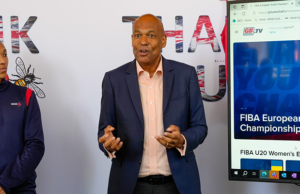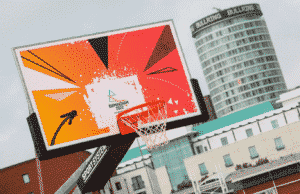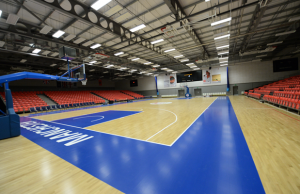British Basketball Will Make Representation to UK Sport, as Government Refuses to Review “No Compromise” Policy

British Basketball have confirmed their intention to begin the appeal process against their recent funding cut by making representations to the UK Sport Board, the same week that the government has announced they have “no plans” to review the ‘no compromise’ policy of the elite funding body.
Making a representation to the UK Sport board is not a formal appeal, instead an opportunity for British Basketball to state their case if they feel UK Sport have missed something or need to review additional evidence. If UK Sport still do not relent, British Basketball could then go to a formal appeal, done through Sport Resolutions UK, an independent body, which will ask whether UK Sport’s process to come to their decision was flawed.
Things look bleak, however. It seems near impossible that British Basketball can make a legitimate case that they can win an Olympic medal by 2020, and the majority of their current arguments call for a change in the way UK Sport fund team and emerging sports; a case that was thwarted on Thursday by government officials.
In a document published on their website, a response to a legacy report from the House of Lords Select Committee that requested that the “no compromise approach to be reviewed with a view to adopting a more flexible approach which would give more weight to other measures than recent medal success and forecasts”, the government said they have no intention of changing the way UK Sport does things.
The response reads:
“UK Sport’s ‘No Compromise’ philosophy has taken the GB Olympic team from 36th in the medal table in Atlanta 1996 to 3rd in London in both the Olympic and Paralympic Games; creating a high performance system admired around the world. We have no plans to review this approach as we have no wish to give other nations a competitive advantage over Team GB.
“No Compromise” funding for winter sports has created greater opportunities, as UKS invests on an eight year pathway in sports with credible medal chances in the next and subsequent games – for winter sports this has meant the greatest investment ever.
UK Sport publishes a clear set of investment principles which are subject to review in each Olympic/Paralympic cycle. They are understood and accepted as an objective and effective approach to managing an investment with high level goals and through
approximately 50 sports and partner organisations.Previous streamlining investments in sports such as hockey and gymnastics has encouraged them to refocus and prioritise more effectively – gymnastics funding was reduced in 2004, but secured one medal in Beijing, then winning four at London 2012.”
British Basketball’s Performance Chairman, Roger Moreland, remains undeterred.
“The Government’s response to ‘The Legacy Report’ does not change anything we have been saying,” he said in a statement on British Basketball’s website on Friday.
“The ‘no compromise’ approach of UK Sport clearly works; it has delivered medals. What we have highlighted is a gap in the funding system that needs to be filled, so that team and emerging sports can realise their potential. ”
“In fact the Government’s response highlights a very important point in that funding to hockey and gymnastics was reduced, not removed completely and that gave them the chance to regroup. The irony is that the amount of funding available to UK Sport now is four times more than it was when they took that action with hockey and gymnastics.”
“I sat in an audience at Loughborough University a few weeks before the London Games. David Cameron gave an inspirational speech in which he talked about opening people’s eyes to the possibility of sport, about getting young people to follow their heroes, about the fact that too many medal winners came from independent schools and about how top sports men and women as role models can inspire change. ”
“I agree with all of that and it all applies to the team and emerging sports that have currently been cast adrift in the wake of the euphoria which followed London 2012. They appeal to a different demographic and the current system gives them no chance to succeed. That is the result of the funding gap. The cost of finding a solution, if all team and emerging sports were to be supported, is a near two-percent of the more than one billion pounds being invested in sports up to 2017.
“Surely it is possible to find a solution to this funding gap and I know all the sports affected feel the same and would be delighted to engage in dialogue to help find a way forward.”
Thoughts?






0 comments